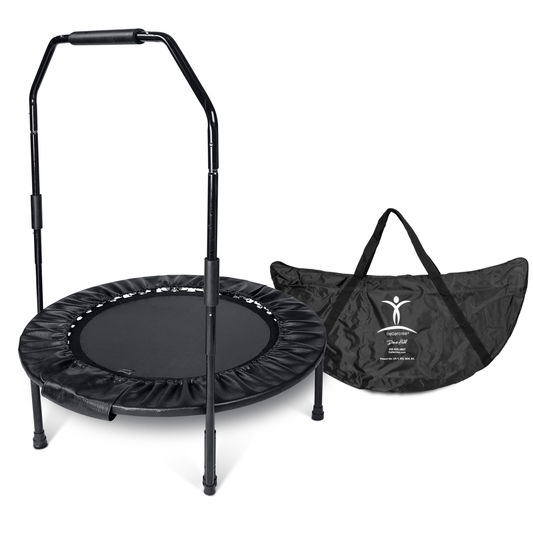The cardiovascular system is responsible for important functions within our bodies, and the benefits of cardio exercise are well documented. The lymphatic system, however, may be just as vital to your health. Find out the importance of this network of organs and tissues and what you can do to keep it in top shape.
[quote_shortcode_1]
What Is the Lymphatic System
The lymphatic system is made up of lymphatic vessels connected to lymph nodes. It can be best understood by comparing it to the circulatory system. Veins and blood vessels carry blood to organs, tissues and individual cells throughout the body. The lymphatic system is a similar network, only instead of blood it carries lymph. The human body contains hundreds of lymph nodes in areas like the chest, underarms and groin. The following are also important components of the lymphatic system:
- Spleen – This organ located just above your left kidney controls blood storage and helps fight infection. When it identifies potentially harmful material like bacteria or viruses, it starts to create white blood cells and signals other lymph nodes to do the same.
- Tonsils – These large groups of lymphatic cells act as the body’s first line of defense and are located in the throat. When bacteria and viruses creep in through the nose and mouth, tonsils fight infection.
- Thymus – Lymphocytes are white blood cells that mature into T-cells to fight infection and destroy cancer cells.
[customer_review_shortcode]
The lymphatic system is part of the body’s immune system, it helps balance fluids and is necessary for fat-soluble nutrients to be digested and absorbed.
 How the Lymphatic System Works
How the Lymphatic System Works
The circulatory system delivers plasma to cells. Once they have absorbed nutrients from blood, cells excrete fluids like water and electrolytes. This liquid moves into the space between cells and becomes lymph, a clear, colorless fluid. The lymphatic system is the drainage system for everything the cells don’t use.
Unlike the circulatory system, lymphatic drainage only goes one way, toward the neck. It has to continually work against gravity to move lymph to lymph nodes. Lymphatic capillaries carry it to ducts and through a series of nodes when muscles contract. Ninety percent of the fluid in plasma returns to veins. The rest drains away through the lymphatic system.
[quote_shortcode_2]
If a person’s lymphatic system were to stop functioning, lost blood volume and swelling tissue would cause death within 24 hours.
The Lymphatic System and Immunity
The skin protects the body against infection. Acid in the stomach also kills much of the toxins that enter. However, pathogens still make their way into the body where it sometimes enters the lymphatic system.
The lymph system produces antibodies, proteins that attach to invading substances. Some antibodies form a capsule around the invader so white blood cells know to attack and destroy them. Others produce antitoxins to neutralize substances secreted by bacteria.
When the lymphatic system produces antibodies, lymph nodes often feel swollen and tender. That’s one reason when patients go to the doctor with cold symptoms, the physician often checks lymph nodes in the neck and under the arms. The body responds to infection by producing and releasing white blood cells. Once the body produces antibodies, the harmful organism that caused the reaction will no longer pose a threat.
[advertisement_shortcode]
The Lymphatic System and Absorption
When individuals consume fat, it passes through the stomach into the intestinal tract. The small intestine contains specialized lymphatic cells called lacteals. Lacteals absorb fat and fat-soluble nutrients to make them available to the body.

Lymphatic System Disorders
What happens when the lymphatic system malfunctions? Lymphatic system problems can lead to the following conditions:
- Lymphedema – When the lymph nodes recognize bacteria, they produce white blood cells. Fluid builds to cause swelling that can be felt anywhere lymph nodes are concentrated.
- Lymphadenopathy – When lymph nodes are blocked because of infection or cancer, they can become painfully enlarged.
- Lymphoma – This cancer of the lymph nodes happens when lymphocytes experience uncontrollable growth.
- Castleman Disease – This inflammatory disorder is similar to lymphoma and can cause several organs to experience dysfunction.
- Lymphangiomatosis – This disease results from a genetic mutation and causes cysts to form in lymphatic vessels.
[quote_shortcode_3]
Keeping Your Lymphatic System Healthy
Every day people encounter toxins in the environment. Food contains chemicals, hormones and preservatives that challenge our digestive systems. People are more sedentary than ever, so many of those toxins stay trapped in our cells. The circulatory system has your heart to pump blood throughout your system, but the lymphatic system has no organ to circulate lymph. It relies on muscular contractions to work against gravity.
Any form of exercise is beneficial, but one of the most effective involves rebounding. Rebounding on a trampoline is an exercise almost anyone can perform, and it kicks the lymphatic system into high gear. The force of gravity on the body fluctuates, going from a heavy load at the bottom of your bounce to almost zero at the top. Stimulate the one-way valves in your lymphatic system to remove toxins without stressing your joints. Have fun on a trampoline while you improve your overall health.
NOTE: Remember to always consult with your doctor or health professional before starting new exercise routines.
Get Your Cellerciser® and start rebounding today!
Sources:
www.moneycrashers.com/health-benefits- trampoline-exercises/
www.livescience.com/26983-lymphatic- system.html
www.innerbody.com/image/lympov.html
www.chrisbeatcancer.com/rebounding/
www.medical-reference.net/2011/08/how- does-lymphatic- system-work.html
[disclaimer_shortcode]
















